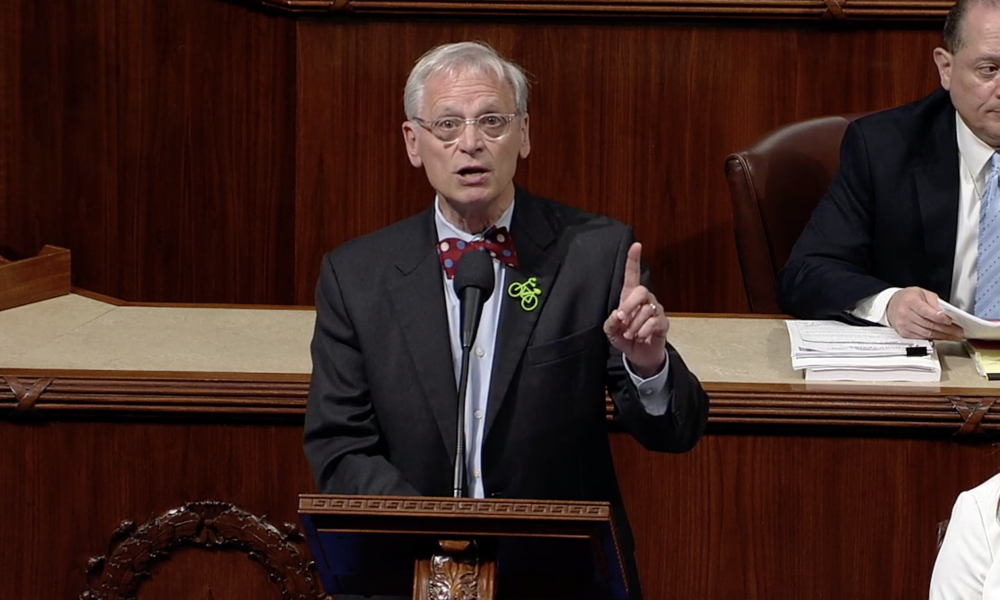Does this answer your question?
DO NOT SIGN UP FOR THESE MEDICAL PROGRAMS or you will be willingly trading your right to own a firearm for a medical cannabis card..

 www.marijuanamoment.net
www.marijuanamoment.net

Published
on
December 26, 2024
By
Kyle Jaeger
The federal Bureau of Alcohol, Tobacco, Firearms and Explosives (ATF) is warning Kentucky residents that, if they choose to participate in the state’s medical marijuana program that’s set to launch imminently, they will be prohibited from buying or possessing firearms under federal law.
As Kentucky prepares to implement the medical cannabis law that Gov. Andy Beshear (D) signed last year, ATF has put residents on notice about the ongoing federal ban on gun ownership by people who use marijuana, regardless of individual state policies.
“You cannot possess firearms and ammunition and also be a user of marijuana,” ATF Special Agent AJ Gibes told WDRB this month, referring to a statute requiring gun purchasers to fill out a form that includes a question about whether they are an active marijuana consumer. If they check yes, they’re disqualified from owning the firearm.
Notably, Gibes said that while people who already own a gun aren’t “expected to” turn them over if they become state-legal cannabis patients, those who “wish to follow federal law and not be in violation of it” must “make the decision to divest themselves of those firearms.”
He added that ATF is “not actively seeking and working solely on investigations involving just the possession of firearms and marijuana because of our finite resources,” but that doesn’t change the law, and people will still be at risk of prosecution if they violate it.
ATF has also weighed in on other recent state cannabis policy developments.
Last year, for example—after the governor of Minnesota signed a marijuana legalization bill into law—ATF issued a reminder that people who use cannabis remain federally banned from purchasing and possessing guns.
In 2020, ATF issued an advisory specifically targeting Michigan that requires gun sellers to conduct federal background checks on all unlicensed gun buyers because it said the state’s cannabis laws had enabled “habitual marijuana users” and other disqualified individuals to obtain firearms illegally.
The federal statute banning people who use cannabis from buying or possessing firearms has been challenged in multiple federal courts over recent years, with one making it all the way to the U.S. Supreme Court. However, justices ultimately sent that case back down to a lower court after issuing a relevant ruling in a separate Second Amendment case.
The Justice Department has claimed in multiple federal cases over the past several years that the existing statute is constitutional because it’s consistent with the nation’s history of disarming “dangerous” individuals.
Last year, for example, DOJ told the U.S. Court of Appeals for the Third Circuit that historical precedent “comfortably” supports the restriction. Cannabis consumers with guns pose a unique danger to society, the Biden administration claimed, in part because they’re “unlikely” to store their weapon properly.
Earlier this year, meanwhile, President Joe Biden’s son Hunter was convicted by a federal jury of violating statute by buying and possessing a gun while an active user of crack cocaine.
Two Republican congressmen challenged the basis of that conviction, with one pointing out that there are “millions of marijuana users” who own guns but should not be prosecuted.
Meanwhile, some states have passed their own laws either further restricting or attempting to preserve gun rights as they relate to marijuana. Recently, for example, a Pennsylvania lawmaker introduced a bill meant to remove state barriers to medical marijuana patients carrying firearms.
Colorado activists also attempted to qualify an initiative for November’s ballot that would have protected the Second Amendment rights of marijuana consumers in that state, but the campaign’s signature-gathering drive ultimately fell short.
The U.S. District Court for the Western District of Oklahoma ruled last year that the ban prohibiting people who use marijuana from possessing firearms is unconstitutional, with the judge stating that the federal government’s justification for upholding the law is “concerning.”
In U.S. District Court for the Western District of Texas, a judge ruled last April that banning people who use marijuana from possessing firearms is unconstitutional—and it said the same legal principle also applies to the sale and transfer of guns.
DO NOT SIGN UP FOR THESE MEDICAL PROGRAMS or you will be willingly trading your right to own a firearm for a medical cannabis card..

Kentucky Residents Who Participate In State’s New Medical Marijuana Program Will Be Ineligible To Own Guns, Feds Warn
The federal Bureau of Alcohol, Tobacco, Firearms and Explosives (ATF) is warning Kentucky residents that, if they choose to participate in the state’s medical marijuana program that’s set to launch imminently, they will be prohibited from buying or possessing firearms under federal law. As...
Kentucky Residents Who Participate In State’s New Medical Marijuana Program Will Be Ineligible To Own Guns, Feds Warn
Published
on
December 26, 2024
By
Kyle Jaeger
The federal Bureau of Alcohol, Tobacco, Firearms and Explosives (ATF) is warning Kentucky residents that, if they choose to participate in the state’s medical marijuana program that’s set to launch imminently, they will be prohibited from buying or possessing firearms under federal law.
As Kentucky prepares to implement the medical cannabis law that Gov. Andy Beshear (D) signed last year, ATF has put residents on notice about the ongoing federal ban on gun ownership by people who use marijuana, regardless of individual state policies.
“You cannot possess firearms and ammunition and also be a user of marijuana,” ATF Special Agent AJ Gibes told WDRB this month, referring to a statute requiring gun purchasers to fill out a form that includes a question about whether they are an active marijuana consumer. If they check yes, they’re disqualified from owning the firearm.
Notably, Gibes said that while people who already own a gun aren’t “expected to” turn them over if they become state-legal cannabis patients, those who “wish to follow federal law and not be in violation of it” must “make the decision to divest themselves of those firearms.”
He added that ATF is “not actively seeking and working solely on investigations involving just the possession of firearms and marijuana because of our finite resources,” but that doesn’t change the law, and people will still be at risk of prosecution if they violate it.
ATF has also weighed in on other recent state cannabis policy developments.
Last year, for example—after the governor of Minnesota signed a marijuana legalization bill into law—ATF issued a reminder that people who use cannabis remain federally banned from purchasing and possessing guns.
In 2020, ATF issued an advisory specifically targeting Michigan that requires gun sellers to conduct federal background checks on all unlicensed gun buyers because it said the state’s cannabis laws had enabled “habitual marijuana users” and other disqualified individuals to obtain firearms illegally.
The federal statute banning people who use cannabis from buying or possessing firearms has been challenged in multiple federal courts over recent years, with one making it all the way to the U.S. Supreme Court. However, justices ultimately sent that case back down to a lower court after issuing a relevant ruling in a separate Second Amendment case.
The Justice Department has claimed in multiple federal cases over the past several years that the existing statute is constitutional because it’s consistent with the nation’s history of disarming “dangerous” individuals.
Last year, for example, DOJ told the U.S. Court of Appeals for the Third Circuit that historical precedent “comfortably” supports the restriction. Cannabis consumers with guns pose a unique danger to society, the Biden administration claimed, in part because they’re “unlikely” to store their weapon properly.
Earlier this year, meanwhile, President Joe Biden’s son Hunter was convicted by a federal jury of violating statute by buying and possessing a gun while an active user of crack cocaine.
Two Republican congressmen challenged the basis of that conviction, with one pointing out that there are “millions of marijuana users” who own guns but should not be prosecuted.
Meanwhile, some states have passed their own laws either further restricting or attempting to preserve gun rights as they relate to marijuana. Recently, for example, a Pennsylvania lawmaker introduced a bill meant to remove state barriers to medical marijuana patients carrying firearms.
Colorado activists also attempted to qualify an initiative for November’s ballot that would have protected the Second Amendment rights of marijuana consumers in that state, but the campaign’s signature-gathering drive ultimately fell short.
The U.S. District Court for the Western District of Oklahoma ruled last year that the ban prohibiting people who use marijuana from possessing firearms is unconstitutional, with the judge stating that the federal government’s justification for upholding the law is “concerning.”
In U.S. District Court for the Western District of Texas, a judge ruled last April that banning people who use marijuana from possessing firearms is unconstitutional—and it said the same legal principle also applies to the sale and transfer of guns.



